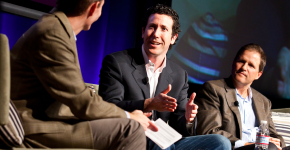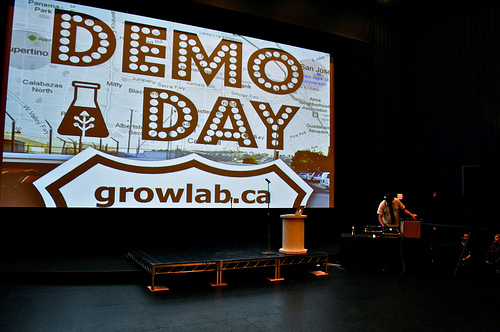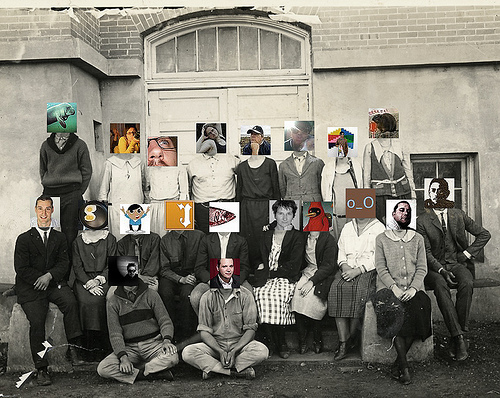I loved Moneyball (the movie). I also especially love sports analogies as they relate to technology and startups. While well-blogged about (Fred Wilson, Dave McClure, Dharmesh Shah), I believe these analogies are representative of what it takes to create and build a successful startup. While the premise of the book is to evaluate players based on data and metrics, I couldn’t help but tie back to the old school style of scouting in baseball to the current process we’re going through in selecting our cohort.
According to Wikipedia, in baseball, a five-tool player is one who excels at (1) hitting for average, (2) hitting for power, (3) baserunning skills and speed, (4) throwing ability, and (5) fielding abilities. I believe the same can be said for entrepreneurs.

Hitting for Average : Selling to Customers
In Moneyball, Billy Beane and his sidekick focus their team (the Oakland A’s) on one thing – getting on base – because getting on base equates to scoring runs, which equates to wins. In the startup world, scoring runs is the equivalent of getting cash, and this cash comes from customers.
Every entrepreneur needs to sell to customers. They need to generate revenue aka cash. It doesn’t matter if its enterprise customers, direct to consumer, professional services, white labeling, etc. Ultimately, if the startup is successful, they will sell to customers (which could also mean acquiring users). Effective hitters know where to hit the ball – pulling the ball, going opposite field, hitting gaps. Effective entrepreneurs know the gaps in the market amongst their competition and capitalize.
Hitting for Power : Selling to Investors
Chicks dig the longball. So how do you generate a huge amount of cash for your startup in one shot? You sell to investors. Entrepreneurs should also be able to successfully pitch VCs, angels, and other shareholders. This gives their companies cash in normally larger amounts than when selling to customers. It takes a special person to be able to raise from VCs. It takes a lot of time, energy, and follow-through.
A note on specialists here. In baseball, there are power hitters that specialize in hitting homeruns. Traditionally, these are the most popular and most sought after players because they have a halo effect around them. They fill seats, sell jerseys and advertising. They are the top billers and they usually can do no wrong (unless they cheat). In startups, this is also true because some franchises (VCs) want their own cleanup hitters at the top for the same halo effect.
Baserunning Skills & Speed : Hustle, Agility, and Speed
Running the bases in baseball is critical. If you can’t run the bases effectively, you’ll hinder your ability to score runs.
In startups, it’s critical to have that hustle and agility. This is all about opportunity maximization once the ball is in play. This means stretching a single into a double (crosssell / upsell, bigger contracts), stealing when possible (customers from your competition), and generally reading your competition in real-time (intuition and nuances of selling to both customers and investors).
Throwing Ability : Teamwork
This relates to the internal aspects of a startup. Can you lead and work within a team? Can you hit the cutoff man e.g. delegate when is the right time to do so?. This is about being affective with players on your own team to maximize the position you play. The most effective early stage startups I’ve come across have a good team rapport and play to each others’ strengths. Especially early when there is generally chaos, playing the position you’re best at (product, sales, marketing, customer services, QA, IT, etc.) and knowing your limits is critical.
Fielding Abilities : GTD
Every entrepreneur can get things done, and similarly every baseball player can catch a flyball or field a grounder. But the gold glove entrepreneurs are the ones that excel at cranking things out and simply getting things done across a broad range of domains. JFDI (thanks @msuster)! To borrow an American football analogy, this is the blocking and tackling that is the unglamorous and often overlooked aspect of entrepreneurialism.
Intangibles
There are definitely other things that make a successful baseball player and entrepreneur – experience, drive, fire, luck, durability, clutch ability, personal circumstances. Most things have to align for someone to be in the big leagues in baseball and technology.
Scouting
Over the last year as a VC, I’ve seen a lot of entrepreneurs with different combinations of these tools. Some were very effective at selling to customers, but just could not raise a round from VCs. Their pitches were too technical, they got into the weeds too much. They needed more sizzle. They were great at selling to customers, hitting their singles and doubles. But when it came to closing a round, they only had warning track power and process became that much more drawn out and painful.
On the flipside, there were companies where the only thing the CEO could do effectively was raise VC money. This left their companies with a lot of cash in the bank and a high valuation. Now they need to execute and build a product that would attract and acquire customers. Stay off the roids and start bunting if you need.
We are currently scouting players for our franchise. Are you a five-tool entrepreneur? If so, APPLY and come see us at Sprouter today. We’d love to help you develop into an MVP.



 The ancient Greek aphorism “Know thyself” is very relevant to entrepreneurs. Most founders don’t give much thought to how their own personality type influences how well they run their startup. Remember, your reality distortion field distorts yourself too.
The ancient Greek aphorism “Know thyself” is very relevant to entrepreneurs. Most founders don’t give much thought to how their own personality type influences how well they run their startup. Remember, your reality distortion field distorts yourself too.





